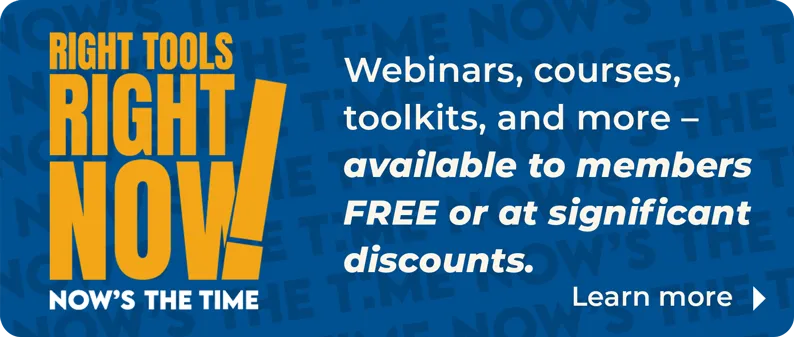NAR Library & Archives has already done the research for you. References (formerly Field Guides) offer links to articles, eBooks, websites, statistics, and more to provide a comprehensive overview of perspectives. EBSCO articles (E) are available only to NAR members and require a password.
Telephone Consumer Protection Act (TCPA) Basics
What’s Regulated Under the TCPA? (Jibrael Hindi, May 10, 2024)
Robocalls, also known as automated calls, are calls made using an automatic dialing system or artificial or prerecorded voice messages. Unless the recipient has given prior express consent, these types of calls are generally prohibited under the TCPA.
Federal Communications Commission Rules That AI-Generated Voices Are “Artificial” Under the Telephone Consumer Protection Act (Computer & Internet Lawyer, May 1, 2024) E
In its Declaratory Ruling, the FCC has now confirmed that current AI technologies, including “voice cloning,” that resemble human voices or generate call content using a prerecorded voice fall within the meaning of “artificial or prerecorded voice” under the TCPA. 11 The FCC explained that voice cloning and other similar technologies are “artificial” voice messages because a person is not speaking, and they are therefore the types of calls from which the TCPA seeks to protect consumers.
Updated Guidance for TCPA Compliance (National Association of REALTORS® Window to the Law, Mar. 22, 2024)
The TCPA is a federal law that requires prior express consent be obtained prior to using an automated telephone dialing system to make telemarketing calls or texts. Failure to obtain such consent can lead to legal liability, costly litigation, and exorbitant penalties.
The TCPA: Protection Against Robo Calls and Prerecorded Calls (NOLO, Mar. 21, 2024)
Understand what constitutes a violation of the TCPA on cell phones and residential phone lines, how violations are documented, and potential damages that may apply for violations.
Single Voicemail Enough to Violate Telephone Consumer Protection Act, 6th Circuit Rules (Claims Journal, Jun. 5, 2023) E
A single voicemail message left on a cellphone without permission is enough to allow an individual to proceed with a class-action lawsuit alleging violations of the Telephone Consumer Protection Act of 1991, a panel with the 6th Circuit Court of Appeals ruled on Thursday.
The appellate panel reversed a District Court ruling that found Matthew Dickson lacked standing to pursue a lawsuit against Direct Energy LP because he suffered no concrete harm.
Window to the Law: TPCA Update on Cell Phone Marketing (National Association of REALTORS®, May 3, 2021)
“Real estate professionals may more freely use their cell phones for marketing purposes without fear of violating the Telephone Consumer Protection Act based on a recent U.S. Supreme Court decision that offers clarity on TCPA limitations.”
The Telephone Consumer Protection Act (National Association of REALTORS®)
“The Telephone Consumer Protection Act ("TCPA") was signed into law by President Bush on December 20, 1991. The TCPA amended Title II of the Communications Act of 1934 by adding a new section (47 U.S.C. sec.227). While the TCPA acknowledges the legitimate business interests of telemarketers, it recognizes the privacy rights of telephone customers and states that the unrestricted use of telemarketing could be an intrusive invasion of privacy as well as a risk to public safety in some instances.”
Telemarketing vs. Informational Calls and Text Messages
How Does the New FCC TCPA Text Message Update Affect Your Marketing Program? (ActiveProspect, May 15, 2024)
If I’m engaging in SMS marketing, am I required to comply with the FCC TCPA text message update?
As attorney Alexandra Krasovec says: “Definitely. If you’re engaging in SMS, you’re not exempt from the FCC order.”
She goes on to advise that “if you are engaging in this activity, you should check your marketing, your disclosures for prior express written consent, your vendor agreements, and the other activities you’re engaging in.”
Telemarketing Laws (FindLaw, Apr. 30, 2024)
The Telemarketing Sales Rule (TSR) is another federal regulation. It requires more disclosures and prohibits intentional misrepresentations on calls. The TSR also covers consumer calls in response to offers and solicitations via mail or online.
The Federal Trade Commission (FTC) regulates and enforces this rule. It monitors consumer complaints of telemarketers who violate the TSR.
New TCPA Rules For Prerecorded Calls to Landlines Take Effect July 20 (ArentFoxSchiff, Jul. 12, 2024)
Though these new rules apply to unsolicited prerecorded calls to landlines, live (even autodialed) calls to landlines will not be subject to these requirements. Informational, non-autodialed live calls or texts to cell phones similarly fall outside the TCPA.
Laws That Affect Text Message Marketing Compliance (Paubox, Feb. 6, 2024)
Are there exceptions to these laws for certain types of messages?
Yes, informational messages, such as appointment reminders or service notifications, may not require prior consent under certain laws like the TCPA. However, businesses must still comply with privacy and security requirements under laws like HIPAA.
Eleventh Circuit Holds that One Unsolicited Text Message is Sufficient Injury (Dentons, Jul. 31, 2023)
Uprooting much of the court’s precedent in Telephone Consumer Protection Act (“TCPA”) class actions, the Eleventh Circuit sitting en banc unanimously held that a plaintiff who receives one unwanted, automated telemarketing text message has standing to sue under the TCPA because they have suffered a concrete injury. This injury reflects an intrusion into the peace and quiet in a realm that is private and personal.
Stop Unwanted Robocalls and Texts (Federal Communications Commission, Jul.7, 2023)
Market research or polling calls to home wireline numbers are not restricted by FCC rules, nor are calls on behalf of tax-exempt non-profit groups. Informational messages such as school closings or flight information to your home phone are permissible without prior consent. The rules do require all prerecorded calls, including market research or polling calls, to identify the caller at the beginning of the message and include a contact phone number.
FCC Adopts Its First Rules Focused on Scam Textingpdf (Federal Communications Commission, Mar. 16, 2023)
The Report and Order adopted today requires blocking of text messages that appear to come from phone numbers that are unlikely to transmit text messages. This includes invalid, unallocated, or unused numbers. It also includes numbers that the subscriber to the number has self-identified as never sending text messages, and numbers that government agencies and other well-known entities identify as not used for texting.
Obtaining Consent
TCPA Update: FCC Implements New One-to-One Consent Rule (RumbergerKirk, May 30, 2024)
Recently, the FCC adopted a new rule impacting what constitutes prior express written consent under the Telephone Consumer Protection Act (TCPA). The new rule, which goes into effect on Jan. 27, 2025, requires that prior express written consent be obtained separately for each company seeking to use such consent. In other words, there must be “one-to-one” consent.
TCPA Compliance Checklist and Best Practices for Businesses (Nextiva, Mar. 1, 2024)
There are three main types of consent for TCPA compliance:
- Express written consent: This is the highest standard of consent required by TCPA, obtained in physical or digital writing.
- Express verbal consent: While verbal consent is acceptable under TCPA, you must maintain accurate records, including the date, time, and nature of the consent.
- Implied consent: Businesses may contact consumers via telemarketing messages if there’s an established business relationship, like a recent purchase. Implied consent has limits, and customers must have a clear path to opt out.
FTC Launches Massive “Operation Stop Scam Calls” Initiative: Focusing on “Consent Farm” Lead Generators and Robocallers (JD Supra, Jul. 20, 2023)
As part of the effort, the FTC has filed five new cases against companies and individuals allegedly responsible for distributing or assisting in the distribution of illegal telemarketing calls across the nation.
FCC Turns to its TCPA Consent Rules: Time for a Checkup? (Nelson Mullins, Jul. 20, 2023)
Senders should review their revocation of consent procedures and be ready to comply with any new FCC limitations.
Compliance Refresher: What Is TCPA Consent? (Contact Center Compliance, Jun. 16, 2023)
To properly acquire express written consent, businesses should ensure that the consent is voluntary and not a condition of purchasing a product or service. They should also keep a record of the consent, including the time and date it was given, the phone number and name of the person who gave the consent, and the specific disclosures that were provided.
Hot Topics in Risk Management (National Association of REALTORS®, Feb. 4, 2019)
“Plaintiff lawyers have created a lucrative business model filing class action lawsuits alleging real estate companies have violated the Telephone Consumer Protection Act, or TCPA, by sending text messages without the recipient’s consent. The TCPA requires prior express written consent before using autodialing equipment to send telemarketing messages to wireless numbers.”
Established Business Relationship Exception (National Association of REALTORS®)
“There are three requirements that apply to sending unsolicited advertising faxes: (1) The sender must have an "established business relationship" with the recipient; (2) The sender must have obtained the customer's fax number through methods described in the legislation; and (3) The sender must provide an opt-out mechanism that meets the Act's requirements.”
Complying With the Do Not Call Registry
Can Realtors Call FSBO Sellers on the Do Not Call List? (Mondaq, Jul. 18, 2024)
When it comes to real estate listings, For Sale by Owner (FSBO) and Expired Listings, you may not call a person who has advertised his property as FSBO or whose listing with another realtor has expired if:
- the person's telephone number is on the National Do-Not-Call Registry and
- the purpose of your call is to offer to list the homeowner's property.
Realtor’s Guide to Telemarketing Compliance (CompliancePoint, Apr. 30, 2024)
Check the National Do Not Call Registry
- Before making any telemarketing calls, scrub your call list against the National Do Not Call Registry, when no available exemption applies.
- Remove any numbers listed on the Registry from your call list.
More Telemarketing Lawsuits Ensnare Agents, Brokerages (REALTOR® Magazine, Apr. 9, 2024)
Be sure to routinely check names and numbers against the Do-Not-Call Registry before calling or texting, even if you’re using a third-party platform or automated telephone dialing system.
Window to the Law: Comply With The Do Not Call Registry (National Association of REALTORS®, Jul. 1, 2019)
Learn how to ensure your phone call marketing plans comply the TCPA’s do-not-call registry restrictions.
National Do Not Call Registry (Consumers)
Consumers may register their phone numbers and report violations.
National Do Not Call Registry (Sellers and Telemarketers)
Businesses may register for access and pay applicable subscription fees.
FAQ: Do-Not-Call Registry (National Association of REALTORS®)
Real estate professionals must comply with the Do Not Call Registry for any cold calling activities. It is important to be aware of any state lists in addition to federal, check the Registry every 31 days, and understand any exemptions that may apply.
Safe Harbor Provision (National Association of REALTORS®)
The safe harbor provision can help protect businesses from lawsuits on Do Not Call Registry violations. In order for safe harbor to apply, a business must show that it has a written plan for complying with the registry, train personnel on the Rules, and maintain a list of telephone numbers that the business can not contract.
Have an idea for a real estate topic? Send us your suggestions.
The inclusion of links on this page does not imply endorsement by the National Association of REALTORS®. NAR makes no representations about whether the content of any external sites which may be linked in this page complies with state or federal laws or regulations or with applicable NAR policies. These links are provided for your convenience only and you rely on them at your own risk.









